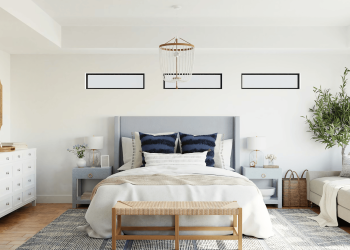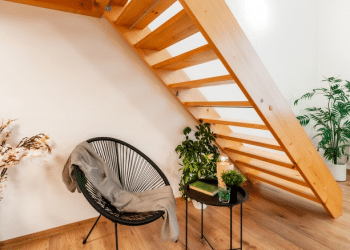If you work from home, you probably spend a good deal of time in your home office or workspace. The way you decorate and care for it matters, and although it’s important to have a space you like, it’s not just chalked up to appreciating the aesthetics. So, why does it matter? How does your office space impact you and your work, and what can you do to care for and decorate your workspace in a way that serves you well? Today, we’ll answer those questions and address how to find support if you need it.
Why Your Office Space Matters
It’s true that, depending on your work position, people may or may not see your home office or workspace during meetings that are held over video chat. That’s one reason to take care of it. However, this is not the only reason that the appearance of your workspace or office matters. Here are some of the reasons why your office space matters:
- It can affect your productivity. Research shows that a clean workspace that’s free of distraction and promotes productivity and focus in workers.
- It could make you more or less stressed. Particularly if your space is cluttered, it can make you feel more stressed. Since work-related stress is a common concern that can impact your physical and mental health, it’s important to do what you can to manage it.
- It can impact your mood. You likely spend a lot of time in your home office – possibly, eight or more hours per day. Having a space you enjoy and feel comfortable in will set you up for a better mood throughout the day.
You want to have a home office or workspace that sets you up for success, and you don’t have to break the bank to do it. There are a number of well-researched elements to consider that can help you get the most out of your workspace and create a positive environment for you to spend your working hours in.
How To Create A Positive Office Space
Here are some tips for creating an office space or workspace you can thrive in:
- Make sure that it’s well-lit. Lighting in the workspace impacts not just your productivity, but your physical and mental wellbeing. Having a well-lit space can reduce eye strain and headaches, prevent you from getting groggy during work, enhance your mood, and support your productivity. Natural light or lighting that mimics natural light is best.
- Keep it clean. It may come as no surprise that a messy workspace impacts your work performance, productivity, and focus, but it can affect you in other ways, too. Research shows that clutter is associated with higher cortisol levels and stress that can contribute to feelings of anxiety and depression.
- Consider your desk placement. Going along with the case for good lighting, positioning your desk in an area where you’re able to benefit from that lighting can be helpful. Some also say that.
- Choose colors and decor wisely. Again, you don’t necessarily need to spend a ton of money. Simply opting for light colors over dark or dreary shades can be beneficial.
- Consider adding greenery. One study found that those who worked in surroundings with natural features experienced feeling more productive, more creative, and even felt that it supported their overall wellbeing. Adding plants, opening a window, or even using decor that mimics nature can be helpful.
With it in mind that not everyone has a full home office, these tips can be applied to smaller workspaces as well. If you’re struggling with work-related concerns that are impacting your mental health, however, it’s essential to acknowledge that your office space can’t do it all. Many people love working from home and would have it no other way. On the other hand, some people who are new to working from home might be undergoing a difficult adjustment period, or you may be facing other concerns, such as having trouble setting boundaries with yourself or others when it comes to work, dealing with a heavy workload or a less-than-ideal company culture, or something else. If this is the case for you, finding support in the form of a therapist or counselor may be beneficial.
Find A Therapist
Whether you’re coping with stress related to work, interpersonal relationships, familial issues, or anything else that’s on your mind, seeing a therapist can help. There are a number of different ways to find a licensed professional counselor or therapist. You can search the web, ask your doctor for a referral, contact your insurance company to see who they cover, or use a reputable online therapy website like BetterHelp. You deserve to get the support you need, so don’t hesitate to start looking for a therapist today.
Marie Miguel Biography
Marie Miguel has been a writing and research expert for nearly a decade, covering a variety of health- related topics. Currently, she is contributing to the expansion and growth of a free online mental health resource with BetterHelp.com. With an interest and dedication to addressing stigmas associated with mental health, she continues to specifically target subjects related to anxiety and depression.









